BORN IN HIGHLAND PARK, Ill., Estefan Linares is a 23-year-old alumnus of the University of Notre Dame. His father is from Peru and his mother is from Costa Rica. “I think the identity that I most commonly see myself as is an American minority. I do see myself as Hispanic and American Hispanic but I also feel I can relate to a lot of things that Black people go through. I do identify with Peru and Costa Rica strongly but I’m more, so an American minority,” Linares said.
What do you think of the term Latinx to identify people of Latin American or Spanish background?
Somebody interviewed me about this like a year ago. My answer back then was that I don’t like it too much because Latinx was created by people here in the United States. I’m sure you know that the Spanish language is masculine and feminine, Latino and Latina, but now there’s a term Latinx which was created by people here in the U.S. A lot of them are white people and I think some Hispanics are uncomfortable with it. I was too in the past because somebody outside of the community is telling people how to speak and how to address things in their language.
I’m Hispanic, and I like rap music a lot and I’m a rapper. Rap music often crosses over with Black culture a lot. I don’t feel like it’s my place to speak on Black culture. I may have opinions on it but I’m not going to tell Black people how to feel, what to say, what to think as a community and a culture.
I still agree with that, people outside of the culture shouldn’t be telling Hispanic people, “Hey, you have to say it this way or that way.” But I think it’s a positive thing because there are Hispanic people that are non-binary or on a different gender spectrum and I think the term is made with good intentions, out of a willingness to help and to make more people feel included.
So as long as it’s something that people are trying to use like, “let’s be more inclusive of others, let’s try to understand others,” then I am all for it 100 percent. Maybe in the past I did mind it a bit but I don’t mind it anymore. I guess the only time I would draw the line is when other people in other cultures try to tell us what to say. I would never tell others what to do or how to feel. I wouldn’t appreciate the same thing done to us. I think it’s a matter of respect; overall I think it’s a good term.
Do you feel like Latinx is just an excuse for corporations to lump all Latino cultures together?
I don’t think it does. Latinx is meant to include LGBTQ Hispanics, so I’ve always seen that as a positive thing because I think there are a lot of struggles that come with that so I’m 100 percent in favor of that. I’ve never seen it that way before, Latinx being used to lump all Latino cultures together. But I guess that you could say that about any culture, like there are Black people from the United States, there are Black people who grew up in Kenya or Ghana or Nigeria. So I think Latinx isn’t so much a problem for distinction between Hispanics, more so I think it’s useful to be inclusive for LGBT people, which I think is good.
“When I grew up, I was ashamed of speaking Spanish because any time I spoke Spanish around the people at St. Francis, I’d get weird looks.”
Has your experience as a Latinx person isolated you to the way you grew up, or have you been able to branch out culturally?
When I went to elementary school, I’m going to be honest, wasn’t a very welcoming place. It was racist, and there are people there who have beliefs and they are not OK. They’re intolerant and make you feel bad about yourself and your culture.
If you’re not a typical white person you’re probably going to feel bad at some point about who you are. That made it difficult for me to feel I was Hispanic for a long time because I just felt ashamed of who I was. But now I see myself as very involved and I feel that I’m very connected to my culture. Also, I feel connected to other cultures as well.
That’s one thing I don’t like about certain Hispanics or people in other groups. They’re very identified with their culture but they’re close-minded to other cultures. I always try to be open-minded minded to everybody.
I try to learn about everybody because I know how that felt, to be discriminated against. I feel at this point, I’m pretty connected to my roots. When I got to Stevenson [High School] I was able to do that because I started to meet other people who were Hispanic and people of other cultures because that allows you to discover yourself as well. You learn that other people are happy with who they are.
As a U.S. born, does it bother you to be labeled?
I have for a long time felt like labels bothered me. Because you’re Hispanic, there are certain comments that come at you a lot. When I went to Notre Dame, other students were familiar with the fact that Notre Dame is a white school. A lot of white people go there. The stereotype with Hispanics, and Black people, is that you have to play sports to get there. So I got that question a lot from other students there. They asked me if I played a sport.
I’m sure they’re assuming that because a lot of Hispanic people play soccer; I must play soccer. I never took it offensively because I love soccer and I would have loved to play soccer at Notre Dame. But I made it because of my credentials, the way I worked hard. So those kinds of labels do bother me; make them look at you in a demeaning way.
“You’re Hispanic and you’re not as good as us white people, and therefore you had to have played a sport or done something else to get here.” I feel like being Hispanic is also something that I’m proud of because it’s my culture, my heritage. I feel labels aren’t necessarily a bad thing but when you label people and put them in a box, that’s really toxic and unhealthy for everybody because you’re a human being. You can do whatever you want. And it also puts them in a box where you feel like you’re lower than other people.
Everybody’s equal, everybody deserves to be happy. So those are the labels that make me angry, the labels that demean.
Do you speak Spanish? How do you view Spanish as an attribute of your identity? How important is it?
I grew up speaking Spanish. That was the first language I spoke. I’m definitely much more versatile in English now but Spanish is a big part of my identity. When I grew up, I was ashamed of speaking Spanish because any time I spoke Spanish around the people at St. Francis, I’d get weird looks. You’re not as American as them because of that and you feel bad about yourself. But I’ve learned that they’re the problem and they’re the ignorant ones, so in reality, I now embrace that.
It’s really cool to speak another language and it’s really cool to interact in a different way. At this point in time, it’s a big part of who I am. One other thing to note though, is that speaking Spanish doesn’t necessarily mean you’re a part of the culture. I spoke Spanish my whole life and even when I was ashamed of speaking it, I still spoke it around my family. The thing is that I was not very connected with my roots.
Being Hispanic, even though I spoke the language doesn’t mean I was connected to the culture. So, I feel like it’s both. It is part of who you are, but your Latino identity goes beyond the language that you speak. It’s the culture, the people, the customs; you have to learn all of that beyond just the language.
“Cultural appropriation is problematic for people if somebody takes part of a culture and then makes it their own without giving credit, or stealing it. I see it more like cultural theft.”
Would you say your culture is “better” than someone else’s who is of a different ethnicity or country?
Absolutely not. I really dislike if any Hispanic thinks like that. Every culture has customs that may not be healthy or appropriate. For instance: mental health [which] was criticized a lot growing up in Hispanic circles. Because of that, for me it was hard to seek out mental health help and understand that I needed help for a long time because I was always being machista. A lot of that comes from the culture. I think that is genuinely wrong. There are a lot of other cultures like that as well. But just because there are segments of the Hispanic culture or other cultures that might be toxic or problematic or wrong, it doesn’t make the entirety of the culture any better or any worse.
Everybody has value in who they are, and I think that value, that worth, never changes. There are people in every culture that are shitty and use that stuff as an excuse to put others down. It doesn’t matter what culture you are in. But if you actually use that to understand yourself better and to understand others better, I think it’s very productive and you grow and change as well over time.
Does cultural appropriation bother you?
It depends. It is a very polarizing term nowadays. The definition of cultural appropriation isn’t actually a bad thing. It’s just taking segments of another person’s culture and utilizing it. We culturally appropriate things, based on the definition, all of the time.
A good example, reggaeton, which is like Latin pop, has been taken from Black music, hip-hop and rap, and from Jamaican reggae music. We have literally taken elements of other cultures to make our music. That being said, I don’t think that’s bad. I can’t speak on behalf of Black people but I think to most Black people that I know, it’s like an honor. We appreciate that culture and have used it to build on others.
I feel like where cultural appropriation is difficult or problematic for people is if somebody takes part of a culture and then makes it their own without giving credit or stealing it. I see it more like cultural theft. I guess that’s what some people mean when they say cultural appropriation, but I think that’s what’s wrong with it.
One popular Black hairstyle is box braids. There were segments of people in Hollywood that were wearing box braids and calling them Kim K braids. They’re not Kim Kardashian braids. They’re braids that have been created by the Black community. You have to give them their credit, and that’s a form of theft, I think. That they’re taking it and redefining it to be theirs but it’s not.
I love things from all cultures, I appreciate that and I don’t think there’s anything wrong with that. I know where my heart is. I know that I genuinely appreciate things and you make it part of who you are. Most people feel like that’s healthy, at least I do.
I feel like the line is drawn when people take something and make it their own or steal somebody else’s idea or custom and make it their own. Other than that, I think cultural sharing is great and it really connects us as human beings.


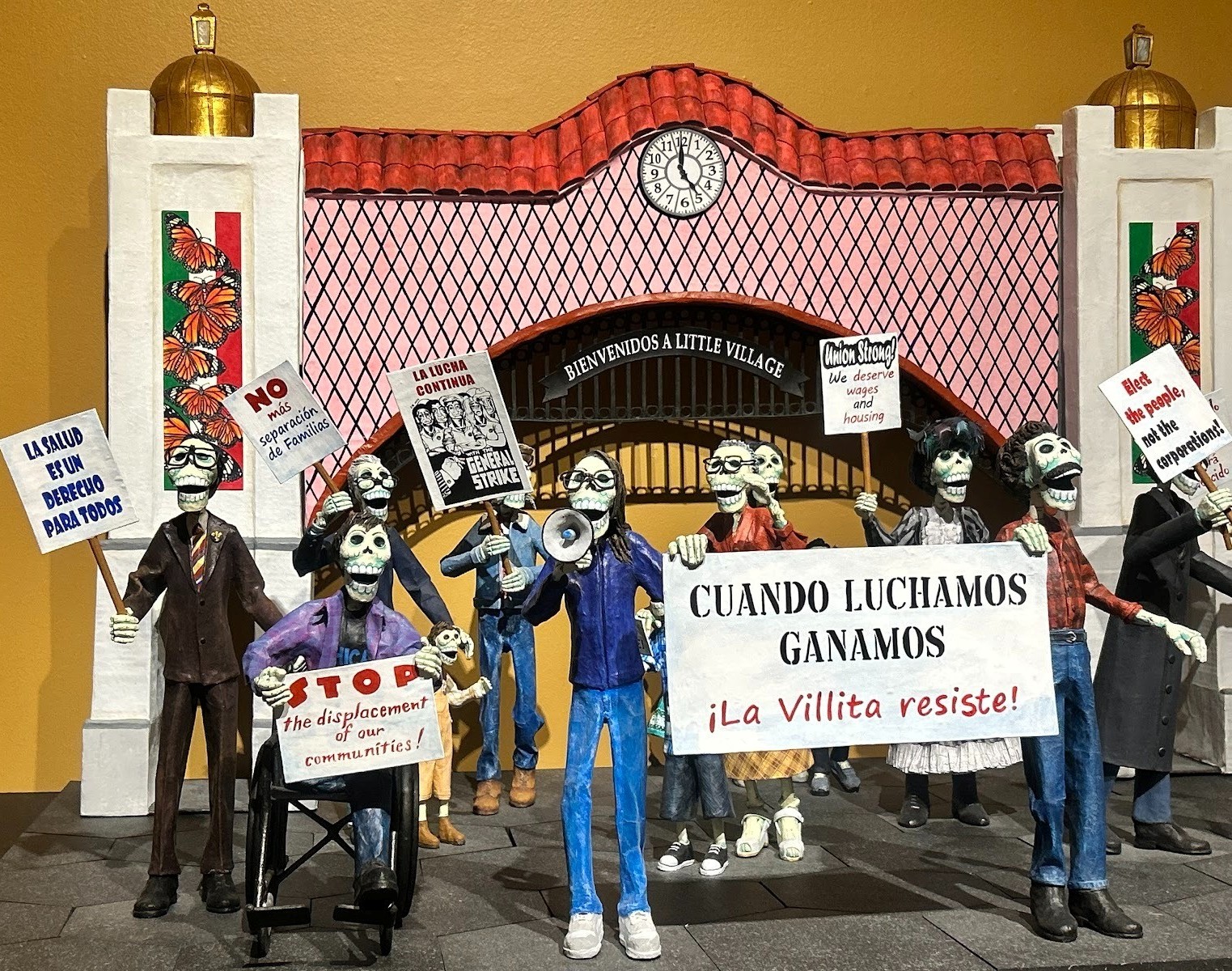

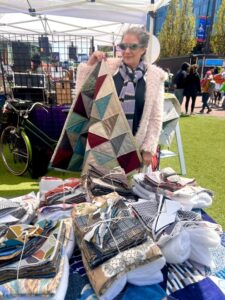






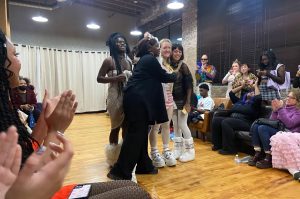







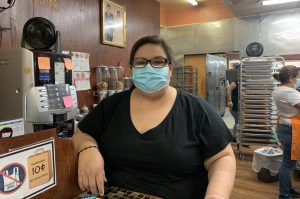
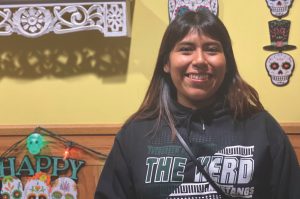



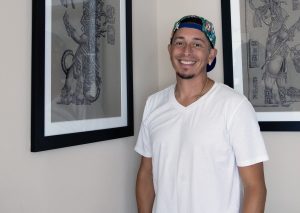
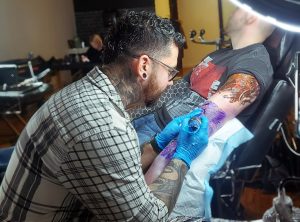
Be First to Comment